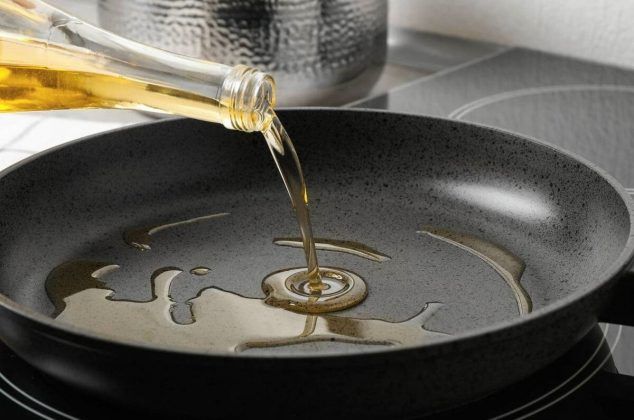Categories
The latest content
-

Customs Clearance & Import Regulations for Bulk Iranian Pinto Beans in EU, Middle East & Africa
..
-

Quality Control & Laboratory Testing Standards for Iranian Pinto Beans
..
-

Logistics & Shipping Solutions for Bulk Iranian Pinto Bean Exports
..
-

Minimum Order Quantity (MOQ) & Bulk Pricing for Iranian Pinto Bean Buyers
..

Tags
Customs Clearance & Import Regulations for Bulk Iranian Sunflower Oil in EU, Middle East & Africa

The global edible oil trade is not just about quality and price—it is also about compliance. For importers of bulk Iranian sunflower oil, customs clearance and adherence to local regulations can make or break a deal. Each region, whether the European Union (EU), the Middle East, or Africa, has its own framework of rules, certifications, and tariff requirements. Understanding these differences ensures smooth logistics, reduced costs, and uninterrupted market entry.
This article outlines the key import regulations and customs clearance processes you need to know before importing Iranian sunflower oil.
1. Customs Clearance Basics for Edible Oils
Customs clearance for bulk oils typically involves:
• Import documentation (invoice, packing list, bill of lading).
• Health certificates verifying food safety compliance.
• Certificates of origin (to prove Iranian origin for tariff purposes).
• Laboratory test reports for oil quality (peroxide value, acidity, heavy metal content).
• Phytosanitary or hygiene certificates when required by the destination country.
Missing or incomplete paperwork can delay shipments and increase costs.
2. Import Regulations in the European Union (EU)
The EU has some of the strictest food safety laws in the world. Importers of Iranian sunflower oil must comply with:
• EU Food Safety Standards (EFSA guidelines) – covering chemical residues, fatty acid profiles, and microbiological safety.
• Regulation (EC) No 852/2004 – on food hygiene.
• ISO, HACCP, and Organic Certification – essential for most EU buyers.
• Tariff codes under HS Code 1512 (sunflower seed oil), which determine import duties.
Additionally, oils entering the EU must pass Rapid Alert System for Food and Feed (RASFF) checks to confirm compliance. Importers often rely on independent inspection agencies (SGS, Bureau Veritas) to ensure smooth entry.
3. Import Regulations in the Middle East
The Middle East is a fast-growing market for edible oils, with consumer demand for both refined and cold-pressed sunflower oil. Import requirements typically include:
• Halal Certification – mandatory across the region.
• Health & Safety Certificates issued by Iran’s Ministry of Health and verified by destination countries.
• GCC Standards Organization (GSO) guidelines – applicable for Gulf Cooperation Council countries (Saudi Arabia, UAE, Qatar, Kuwait, Oman, Bahrain).
• Customs duties & tariffs – vary by country; for example, the UAE has low import duties, while Saudi Arabia applies higher rates for non-GCC suppliers.
For Middle Eastern markets, brand reputation and certification authenticity are crucial for building long-term partnerships.
4. Import Regulations in Africa
Africa is emerging as a major buyer of Iranian sunflower oil due to competitive pricing. However, regulations differ widely:
• African Union Trade Agreements (AfCFTA) – promoting regional trade but still in early stages.
• Country-specific requirements – Nigeria, Kenya, and South Africa all require food safety certifications and product registrations with local authorities.
• Halal and Organic Certificates – valued in Muslim-majority and health-conscious markets.
• Tariffs and quotas – some African nations offer preferential tariffs to certain countries; checking bilateral agreements with Iran is essential.
Africa also emphasizes quality control and packaging standards, ensuring oils remain stable during longer transit times in warm climates.
5. Common Documentation for All Regions
To avoid delays, exporters and importers of Iranian sunflower oil should prepare:
• Commercial invoice & packing list.
• Certificate of origin (issued by Iran Chamber of Commerce).
• Phytosanitary/health certificate.
• Halal certificate (for Middle East & Muslim markets).
• Laboratory test reports (peroxide value, fatty acid profile, absence of contaminants).
• Bill of lading & shipping documents.
Well-prepared documentation speeds up customs clearance and minimizes storage charges at ports.
6. Key Challenges & How to Overcome Them
Importing sunflower oil can face challenges such as:
• Regulatory changes in tariffs or safety laws.
• Inspection delays at ports.
• Inconsistent certifications leading to shipment rejections.
• Cold-chain management for high-quality oils.
Solutions include:
• Working with certified suppliers like Tamila Agrifood Company.
• Partnering with customs brokers and freight forwarders.
• Using SGS or Intertek verification for compliance.
• Choosing flexible packaging solutions (IBC totes, bulk drums, flexitanks).
Final Thoughts
Customs clearance is often the hidden key to successful sunflower oil imports. While Iranian sunflower oil offers excellent quality and competitive pricing, importers must be fully aware of the documentation, certifications, and tariffs that apply in their target markets.
At Tamila Agrifood Company, we don’t just provide premium sunflower oil—we also support buyers with regulatory compliance, certification assistance, and logistics solutions tailored for the EU, Middle East, and Africa.
Contact us today to receive detailed guidance on import regulations, required certifications, and customs clearance support for bulk Iranian sunflower oil.
Email: tamilaagrifood@gmail.com
WhatsApp for Inquiries: +989141858935



